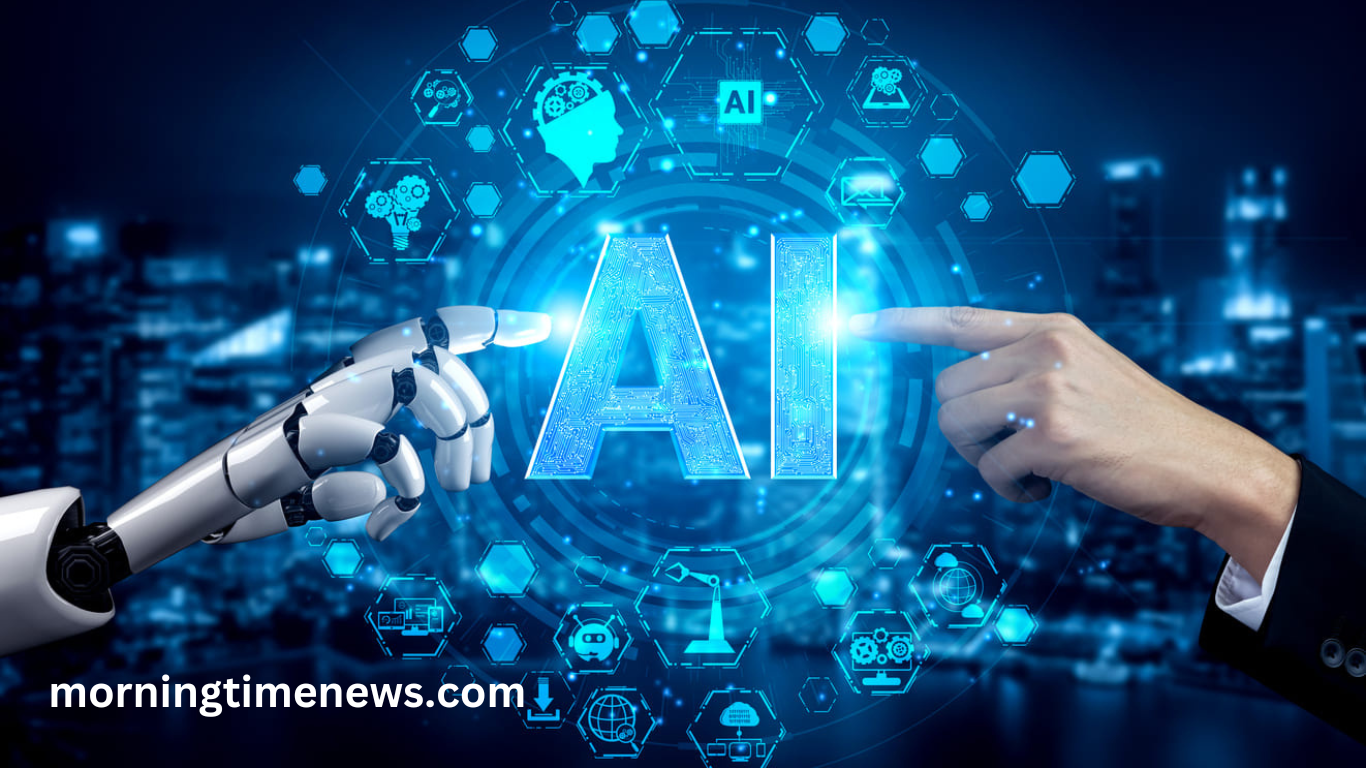Artificial intelligence (AI) is revolutionizing nearly every industry, and the way we design and build computers is no exception. From optimizing chip architecture to enhancing software development, AI is streamlining processes, improving efficiency, and pushing computing power to new heights. Here’s how AI is transforming the landscape of computer hardware and software.
AI-Driven Chip Design: Faster, Smarter, and More Efficient
Traditionally, designing computer chips was a time-intensive process that required years of engineering expertise. Now, AI is accelerating chip development by automating design processes and optimizing layouts for performance and energy efficiency. Companies like Google and NVIDIA use AI to design chips faster than ever, reducing the time from concept to production. AI-powered tools analyze millions of design variations, ensuring the best possible performance with minimal power consumption.
Enhancing Hardware Manufacturing with AI
AI is making hardware manufacturing more precise and cost-effective. Machine learning algorithms help detect defects in semiconductor fabrication, reducing waste and improving yield rates. AI-driven robotics are also improving automation in assembly lines, ensuring more consistent quality control. This results in faster production times and better-performing hardware, ultimately benefiting consumers and businesses alike.
AI’s Role in Advancing Computer Cooling and Power Efficiency
Computers generate massive amounts of heat, and cooling systems are critical for maintaining performance. AI is now being used to optimize thermal management by predicting heat distribution and adjusting cooling mechanisms dynamically. Google, for instance, has used AI in its data centers to reduce cooling costs by 40%. Similarly, AI-driven power management systems ensure computers use energy more efficiently, extending battery life in laptops and reducing power consumption in data centers.
Read More : Microsoft partners with Swiss AI startup inait
AI-Optimized Software for Smarter Computing
Beyond hardware, AI is also revolutionizing software development. AI-powered coding assistants like GitHub Copilot help developers write more efficient and bug-free code. Meanwhile, AI-driven operating systems can optimize computer performance in real-time, learning from user behavior to allocate resources more efficiently. This results in faster, more responsive computers that adapt to user needs seamlessly.
The Future: AI-Designed Computers for AI-Powered Tasks
As AI continues to evolve, we’re entering an era where computers are not just built with AI but built for AI. AI-specific chips, like Google’s Tensor Processing Units (TPUs) and Apple’s Neural Engine, are designed to handle AI workloads more efficiently. This symbiotic relationship between AI and computing means future computers will be more intelligent, more powerful, and highly optimized for AI-driven applications like autonomous vehicles, medical research, and advanced simulations.
Frequently Asked Questions
How is AI helping in computer chip design?
AI automates chip design, optimizing layouts for better performance and energy efficiency. It speeds up the process by analyzing millions of design variations, reducing development time.
How does AI improve hardware manufacturing?
AI-driven quality control detects defects in semiconductor fabrication, reducing waste and improving production efficiency. AI-powered robotics also enhance automation in assembly lines.
Can AI help in reducing computer power consumption?
Yes, AI optimizes power management by predicting usage patterns and adjusting energy consumption dynamically, leading to longer battery life in laptops and lower energy costs in data centers.
How does AI contribute to better computer cooling systems?
AI predicts heat distribution and adjusts cooling mechanisms in real time. Companies like Google use AI to reduce cooling costs in data centers by up to 40%.
How is AI impacting software development?
AI-powered tools, like GitHub Copilot, assist developers by suggesting code, detecting bugs, and optimizing software performance, leading to more efficient computing experiences.
What are AI-specific chips, and why are they important?
AI-specific chips, such as Google’s TPUs and Apple’s Neural Engine, are designed to handle AI workloads efficiently, making AI-powered applications faster and more responsive.
Will AI-designed computers be different from traditional computers?
Yes, AI-designed computers are optimized for machine learning tasks, featuring specialized chips, smarter resource allocation, and improved energy efficiency compared to traditional computers.
How will AI shape the future of computing?
AI will drive faster chip innovation, smarter operating systems, and more efficient hardware, leading to powerful computers built specifically for AI-driven applications.
Conclusion
AI is revolutionizing how computers are designed, manufactured, and optimized. From AI-driven chip development and automated hardware production to smarter cooling systems and energy-efficient computing, AI is making computers faster, more efficient, and highly adaptable. As AI continues to advance, it will shape the next generation of computing, enabling more powerful systems tailored for AI-driven applications across industries, from healthcare to robotics and beyond.

